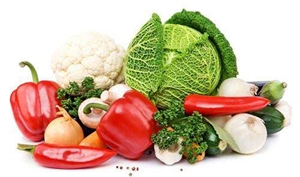
Thermal class
1. Durian is called "the king of all fruits" abroad because of its large fruit and beautiful flavor. Durian pulp is yellow, sticky, juicy, sour, soft and sweet, like ice cream, with a strong smell. People have disputes about its taste: people who love durian praise it as smooth as milk cream, fragrant on their teeth and cheeks, salivating, loving as life and forgetting to return; People who don't like durian smell it and want to vomit. They avoid it. The nature and medicinal use of durian are the same as its flavor. Although people are not used to eating durian, durian is hot and has the effects of strengthening spleen and Qi, tonifying kidney and strengthening yang. It supports the view of compendium of Materia Medica that it can be used for medicine, tastes sweet and warm, is non-toxic, and is mainly used to treat violent dysentery and cold air in the heart and abdomen. It is recommended for the heartache of cancer patients.
2. Papaya has sour taste and warm nature. It has the effects of relaxing tendons, removing dampness and calming the stomach. Commonly used in dampness arthralgia, beriberi, joint swelling and pain, leg cramps, etc. It is well said in the "materia medica derived meaning" that "this thing enters the liver, so it benefits tendons and blood, and the sick waist, kidney, feet and knees are weak. This thing cannot be missing". In modern society, senile and degenerative bone and joint diseases are very common. Light calcium supplement is the favorite of pharmaceutical companies, and eating papaya is the choice of the public. In Taiping Shenghui prescription, papaya pill made of papaya and cassia "can cure accumulated air mass and umbilical and abdominal pain". Modern pharmacological studies have also proved that papaya extract can inhibit Ehrlich ascites cancer in mice.
3. Radish as the saying goes, "eat radish in winter and ginger in summer, don't ask the doctor for a prescription", "radish is on the market, and the doctor is laid off." radish is an indispensable dish on the winter table of many families, and it is also the vegetable variety most consulted by Liuzhou people. That is, can radish solve its drug properties and eat radish when taking medicine? In essence, as a traditional Chinese medicine, radish has the functions of widening the chest and diaphragm, benefiting the five internal organs, resolving phlegm and food, and reducing swelling. It is said that the antidote effect of radish is actually the result of its obvious anti inflation effect. People, including doctors, have different opinions and different opinions. They take it for granted that he has dispelled the effect of tonic drugs. They hear hearsay and follow others, so they stay away and put good vegetable medicine in a useless place. Li Shizhen also feels the same way. He uses his new viewpoint of "raw food increases Qi and cooked food decreases Qi", which is refuted with reason and not quoted much. It's also interesting to quote a few stories. Some people in Qizhou were crazy. A Taoist said: This committed barley poison. The medical classics said that radish made flour poison, so he cured it with medicine and radish; Some people's epistaxis is very dangerous. The doctor stops with radish natural juice and ashless wine; Some people eat tofu poisoning, and the treatment is ineffective. Suddenly, the tofu seller said that his wife mistakenly put radish soup into the pot, so she failed. When one's mind is awakened, he will drink radish soup; Some people fled into the grottoes. The pursuer was dying of smoking. He touched a bunch of radishes and vegetables, chewed juice and swallowed them. Physics is so wonderful. For the current food pollution, radish may be the antidote. It is worth noting that "Puji recipe" treats "nausea and choking, fried and soaked radish honey, chewed and swallowed well", "pulmonary impotence and coughing up blood, radish and mutton or crucian carp, cooked and eaten frequently", and "compendium of Materia Medica" uses radish to treat blood in large intestine, blood under intestinal wind, white urine, sand and stone drenching, swelling all over the body, partial headache, aphasia, swelling and pain in throat ", It is enough to show that radish is the most widely anticancer vegetable.
4. Carrots are not turnips. They are another vegetable, nourishing the liver and brightening the eyes. Although the ancients did not know that it contains carotene, carotene can activate vitamin A and prevent night blindness and vision loss. It can also maintain and promote immune function and play a role in preventing and inhibiting lung cancer. However, Li Shizhen said that it is "invigorating the middle Qi, benefiting the chest, diaphragm, intestines and stomach, calming the five internal organs, making people healthy food, beneficial and lossless". It is also far sighted.
5. Ginger is the representative of both food and medicine. Yi Yin, the earliest doctor in Chinese history, is the imperial cook. He invented the decoction of traditional Chinese medicine. In a sense, ginger is both his specialty and medicine. Li Shizhen praised ginger: "ginger is pungent but not meat, dispels evil and avoids evil, eats cooked food raw, vinegar, sauce, lees, salt and honey frying, all of which are not suitable. It can be mixed with vegetables, fruit and medicine, and its profit is also." ginger is the most widely used and most brilliant anti-cancer drug.
6. Coriander "is spicy, warm and fragrant. It can connect the heart and spleen inside and reach all limbs outside. It can ward off all unhealthy Qi", which is Li Shizhen's words. Coriander can "benefit the small intestine", hemorrhoids bleeding and obstructed urination, which was used by the ancients.